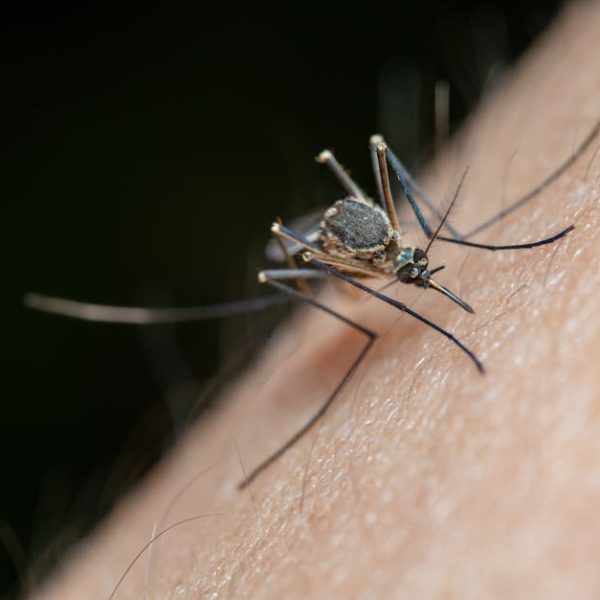Spiders, those eight-legged creatures, have an uncanny knack for showing up in the most undesired corners of your home. There is absolutely nothing fun about walking into an unseen web or encountering a furry critter inside a shoe. But why are spiders so common in homes? And more importantly, how can you keep these unwanted house guests from moving in?
Why Spiders Love Your Home
It may feel personal when you wake up to the sight of yet another cobweb, but spiders don’t nestle into your abode to bother you. Just like any other creature, spiders gravitate toward locations that fulfill basic survival needs – namely, food, shelter and protection from expedited changes in weather conditions.
When given the opportunity, spiders silently lay claim to portions of houses where they can lie in wait for prey, usually unnoticed until they increase in numbers or decide to go exploring. Common reasons attracting spiders to homes include:
- Readily available food sources: The presence of other pests that spiders feed on, like flies and mosquitoes, attracts them to your home.
- Safe hiding spaces: Dark, hidden corners or cluttered spaces provide ideal breeding and nesting grounds for spiders.
- Warmth and shelter: Your home offers a stable environment as protection against fluctuating weather conditions, especially in colder months.
Pro Tip: Despite popular belief, spiders do not have a preference for dirty homes. They will inhabit a clean space just as readily, as long as it offers food, shelter, and warmth.
Denying Entry with Preventive Measures
As with many home pests, preventing spiders from taking up residence is easier than trying to flush them out once they’ve established themselves. A combination of simple lifestyle changes and diligent home maintenance practices keeps the spiders away.
Here are some effective preventive measures to put into practice:
- Regular dusting and sweeping
- Sealing cracks and gaps in walls, windows, and doors
- Proper storage, especially for boxes and clothes
- Effective management of food waste
Best Practices: Cultivate the habit of regularly inspecting less visited areas of your home, and keep clutter in check. The less space spiders have to hide, the less likely they’ll want to stay.
Natural Spider Repellents
Beyond preventive measures, certain household items and essential oils can act as natural repellents, offering the bonus benefit of being eco-friendly and posing fewer health risks compared to many chemical-based solutions. Materials such as peppermint oil, vinegar, eucalyptus, and cedar can all make your home an unattractive place for spiders.
Pros and Cons:
| Remedies | Benefits | Drawbacks |
|---|---|---|
| ————- | :————-: | —–: |
| Peppermint Oil | Highly effective and smells great too! | Can be pricey and requires frequent application |
| Vinegar | Cheap, widely available, and also repels other pests | Strong odor, can stain certain materials if undiluted |
| Cedar | Long-lasting, also repels moths | Expensive, may not be easily accessible |
Sure, nature-provided remedies can work wonders, but it’s also worth noting that their effectiveness can vary from person to person and species to species.
Safely Using Chemical Repellents
If an infestation becomes severe or the available natural remedies aren’t proving effective, opting for chemical repellents might be the next best step. Chemical repellents typically offer a stronger defense against spiders, but it’s vital to use these products safely, especially around children, pets, or individuals with allergies or sensitivities.
Comparisons:
| Brands | Effectiveness | Safety |
|---|---|---|
| ————- | :————-: | ———–: |
| Raid | Very effective against a variety of spiders | May cause skin or eye irritation, toxic if ingested or breathed |
| Ortho Home Defense | Long-lasting protection, kills on contact | Could be harmful if absorbed through the skin, particularly harmful to aquatic organisms |
| Terro Spider Killer | Effective against poisonous spiders, can be used indoors and outdoors | Avoid contact with skin or clothing, highly toxic to fish |
Pro Tip: Always wear gloves and a mask when spraying chemical spider repellents. These products should be stored out of reach of children and pets.
When to Call in the Pros
Sometimes, despite your best efforts, the spider problem persists – or worse, it escalates. In such cases, or when dealing with potentially dangerous species, you might be better off calling in the professionals.
Early signs indicating that you may need professional help include:
- Large numbers of spiders
- Frequently seeing spiders in living areas
- Presence of baby spiders or egg sacs
Best Practices: When choosing a pest control company, look for licensed professionals with positive customer reviews. Discuss their treatment plans and inquire about any post-treatment measures you will need to undertake.
While we may not enjoy sharing our home with spiders, they are part of our ecosystem and play a significant role in controlling other pests. So rather than resorting immediately to killing them, making your home less inviting is a more sustainable and eco-friendly option. Battling spiders can be a daunting task, but equipped with the right knowledge and tools, you’ll be prepared to bid adieu to eight-legged tenants.
Key Takeaway:
- Spiders are attracted to homes due to readily available food sources, perfect hiding and nesting places, and the stable environment against fluctuating weather conditions.
- Preventing spiders from encroaching involves cleanliness, sealing protective openings, proper storage facilities, and effective management of food waste.
- Natural repellents like peppermint oil, vinegar, eucalyptus, and cedar can serve as safe alternatives to chemical treatments for mild spider infestations.
- Chemical repellents offer a stronger line of defense but should be used cautiously because they may pose risks to children, pets, and individuals with allergies.
- Hiring a pest control professional is recommended for large or dangerous spider infestations.
The sight of spiders can be unsettling for many, but understanding why they are attracted to homes and the various preventive measures can help. It’s encouraging to know that there are natural remedies and safe chemical options. Keep your home unattractive to spiders, and they’re sure to find another place to spin their webs.
FAQs
Q: What common household items can be used to deter spiders?
A: Household items such as vinegar, eucalyptus, cedar wood, and essential oils like peppermint oil can serve as natural spider repellents.
Q: Are chemical repellents safe for pets?
A: While chemical repellents are effective against spiders, they might be harmful to pets. Always read and follow the product’s instructions and precautions.
Q: How often should I use natural spider repellents?
A: It varies with the type of remedy, but generally, natural repellents need to be applied more frequently than chemical ones due to their less aggressive nature.
Q: If I keep my home clean, will it prevent spiders?
A: Cleanliness helps, but it isn’t the only factor. Spiders are attracted to homes for multiple reasons, such as food availability and shelter. Thus, along with maintaining cleanliness, sealing hiding spots and managing food waste can also help.
Q: Will pest control professionals always use chemicals?
A: Not always. Many pest control companies offer various treatment options, including natural solutions. It’s advisable to discuss your preferences with them ahead of time.
Please share this article if you found it informative and explore our website for more helpful posts.






